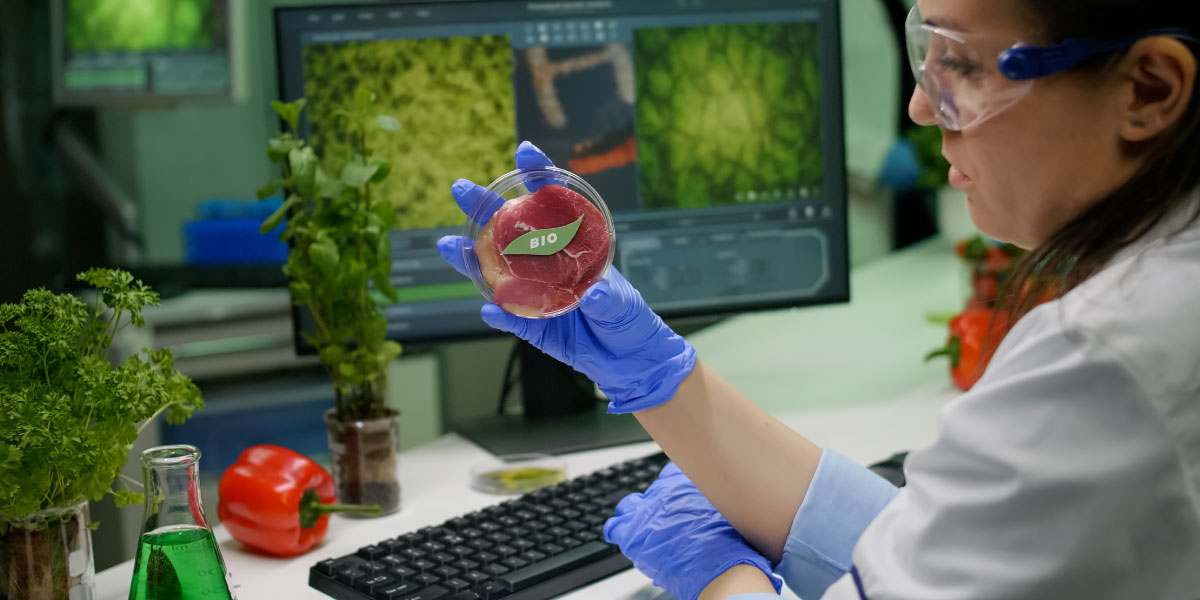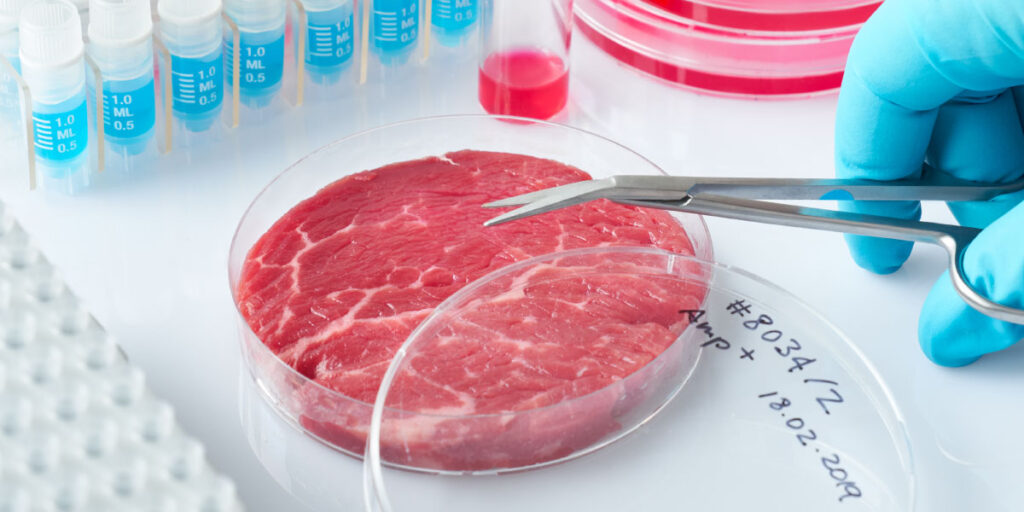The world is starting to catch on to this new concept called lab-grown meat (also known as cultured meat), and more and more companies are starting to take an interest in it as well. As a result, we are going to start seeing more of these products hit the market sooner rather than later. But you may wonder, “Is it safe to feed lab-grown meat to my child?” This article will break down the risks and benefits of lab-grown meat so that you can decide whether or not to feed it to your child.
Download and Start Your Free Trial of the Safes Parental Control App
What is Lab-Grown Meat?
Lab-grown meat is a type of meat that is grown in a lab instead of being produced by animals. It is created by taking cells from an animal and growing them in a tissue culture environment. The production process is quite different from traditional meat production, as lab-grown meat is not made from animal flesh. Instead, the cells are grown in an agar gel—a sort of gelatine substance. This substance allows the cells to grow and multiply in a controlled environment while providing nutrients and oxygen to them. Once the cells have grown in the gel, they are harvested and purified.

Benefits of Lab-Grown Meat
One of the main benefits of lab-grown meat is that it is grown in a clean environment, which means it is much safer to eat than traditional meat. It also means that lab-grown meat doesn’t require antibiotics and other chemicals. Another benefit of lab-grown meat is that it is much more environmentally friendly than traditional meat production. This is because it does not require antibiotics, animal feed, or fossil fuels for production.
Does lab-grown meat have the same nutrients as natural meat? The answer is yes. Technology has enabled scientists to create a product nutritionally identical to its natural counterpart while being cruelty-free (meaning that vegans can also consume it).
Risks of Lab-Grown Meat
First off, the cost of producing lab-grown meat is at the time much higher than that of traditional meat, making it an expensive option. Other than that, lab-grown meat is still relatively new and largely untested. While the FDA has declared lab-grown meat safe for human consumption, the consequences of long-term consumption are still unknown. There is a risk of unknown health side effects or other environmental impacts that may manifest over time.
Final Words: Is It Safe to Feed Lab-Grown Meat to My Child?
Lab-grown meat has the same nutrients as natural meat while being cruelty-free and running less risk of bacterial or chemical contamination. This means that it is a much safer choice for your child to eat. The only drawbacks for you would be the expensive price, uncertainty about long-term effects, and religious restrictions.




